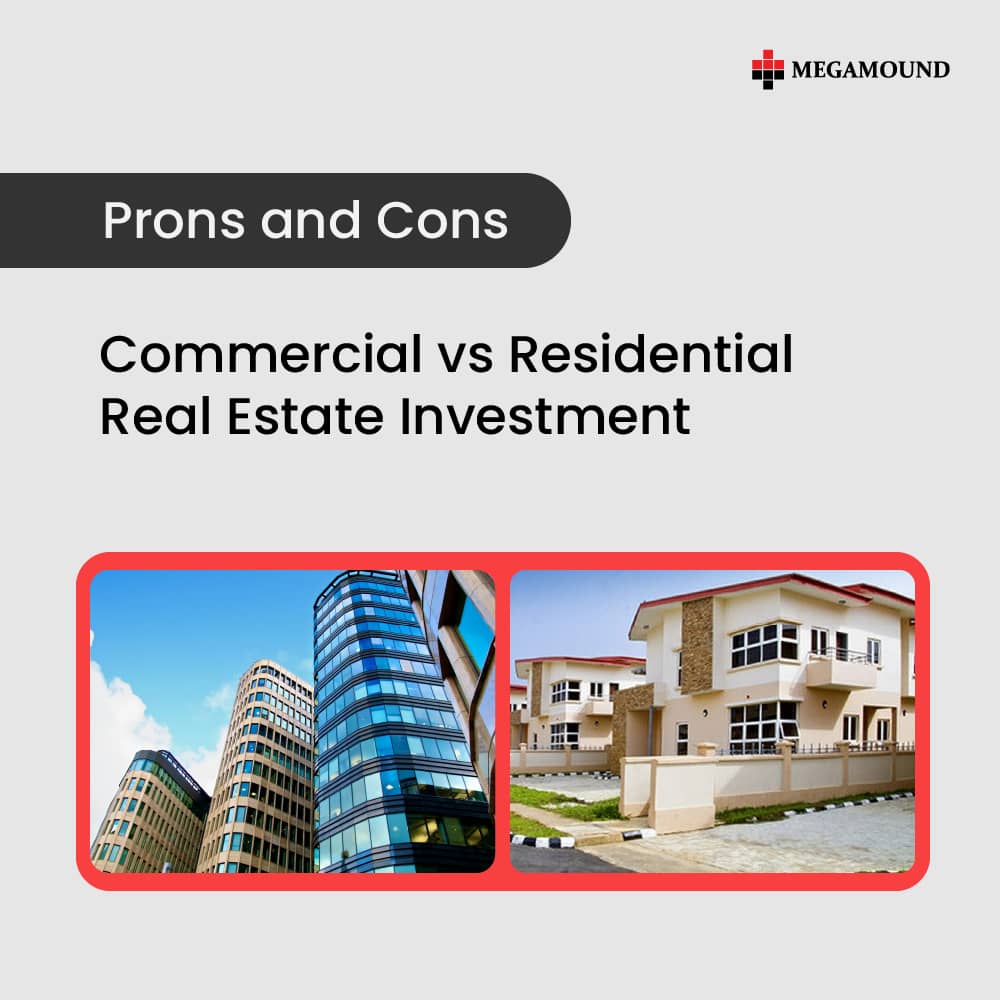In this article, we delve into the pros and cons of commercial and residential real estate, providing you with valuable insights to make an informed investment choice.
When it comes to investing in real estate, the choice between commercial and residential properties can be a critical decision. Both avenues offer unique opportunities and challenges that investors must carefully consider.
Let’s explore the lucrative world of commercial real estate, where long-term leases and potentially higher rental yields await. We’ll also examine the stability and emotional appeal of residential properties, which can provide a steady income stream and potential appreciation.
We will discuss the advantages and drawbacks of each sector, from scalability and market fluctuations to management demands and tenant dynamics. Whether you’re a seasoned investor or just starting your real estate journey, this article will equip you with the knowledge needed to navigate the commercial and residential landscapes effectively.
Read Also: Things to Consider When Buying A Property In Lagos
Get ready to gain a deeper understanding of the potential risks and rewards, empowering you to make confident decisions in your real estate investments.
Let’s analyze the pros and cons of commercial vs residential real estate, guiding you towards making the most profitable choices in your real estate portfolio.
Read Also: Commercial Vs Residential
Residential Real Estate:
Pros:
1. Wider Market: Residential properties cater to a larger pool of potential tenants or buyers, as most people need a place to live.
2. Relatively Stable Demand: Residential properties tend to have consistent demand, even during economic downturns.
3. Easier Financing: Residential properties are often easier to finance, as banks and lenders are more familiar with residential mortgages.
Cons:
1. Lower Rental Yields: Residential properties generally offer lower rental yields compared to commercial properties.
2. Higher Tenant Turnover: Residential properties often have higher tenant turnover rates, requiring more frequent tenant screening and turnover management.
3. Emotional Factors: Residential investing can involve dealing with the emotional attachment of tenants and the complexities of residential landlord-tenant laws.
Commercial Real Estate:
Pros:
1. Higher Rental Yields: Commercial properties, such as office spaces or retail buildings, typically generate higher rental income and potentially offer better returns.
2. Longer Lease Terms: Commercial leases often have longer terms, providing more stability and predictable cash flow.
3. Professional Relationships: Commercial tenants are often businesses, leading to more professional relationships and potentially less emotional involvement.
Cons:
1. Market Volatility: Commercial real estate values can be more sensitive to economic fluctuations and market conditions.
2. Specialized Knowledge: Investing in commercial real estate may require more specialized knowledge and understanding of market trends, tenant requirements, and property management.
3. Higher Entry Costs: Commercial properties generally require more significant upfront investment compared to residential properties.
See our ongoing Greater Lagos County Apartments, Surulere
Ultimately, the choice between residential and commercial real estate investment depends on factors such as personal preferences, risk tolerance, financial resources, and market conditions. Some investors may choose to diversify their portfolios by investing in both residential and commercial properties.
At Megamound Real Estate, we recognize that success lies in the details. We meticulously analyze market conditions, conduct thorough property assessments, and develop investment strategies that maximize potential returns.
Our extensive network and established partnerships afford us access to lucrative opportunities, while our stringent due diligence ensures that we recommend properties with exceptional growth prospects and profitability.
Contact us today to embark on a journey towards real estate success.




